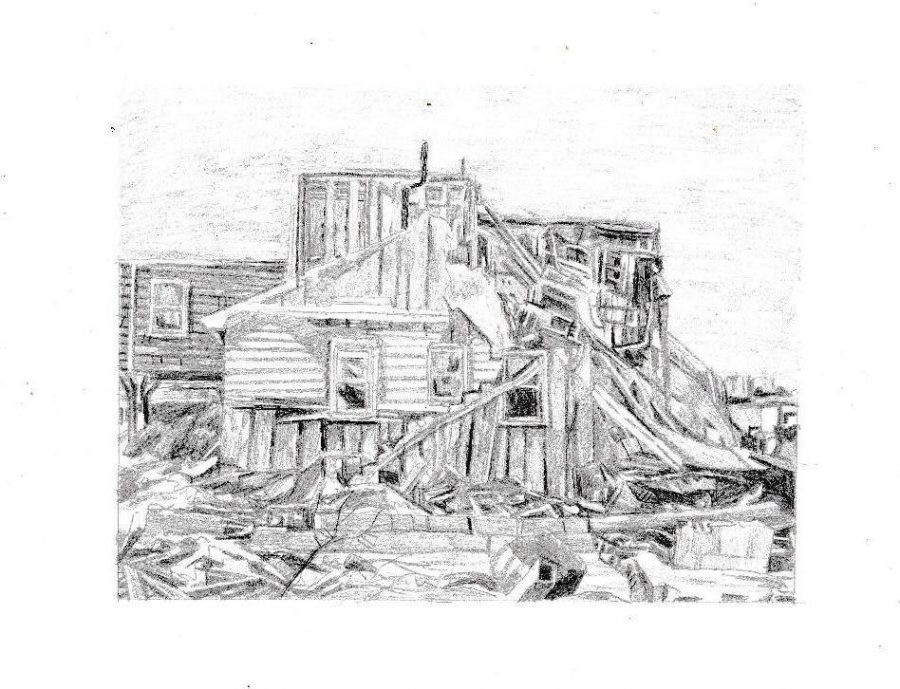Hurricane Sally Wreaks Havoc in the Southeast
October 9, 2020
On September 15th, a catastrophic hurricane, Sally, loomed above the Gulf of Mexico. Already, it was working its way toward the Southeast of the U.S. at a mere two miles per hour, yet leaving meteorologists concerned by the severe damage it was inflicting to the coasts of Mississippi, Florida, and Alabama–the slow pace was actually causing more harm. By Wednesday, hundreds of people in that area were already desperately escaping floodwaters. “It’s incredible that so many storms can develop all at once and that we’ve already had so many hurricanes when there are still two months left in the hurricane season,” physics teacher Ms. Kristin Newton told the Register Forum. “I’m also baffled by the idea of getting over 30 inches of rain at once. I can’t even imagine it.” That Wednesday night, the Category 2 hurricane was already ten miles northwest of Troy, Alabama and was continuing its way up to the Northeast at nine miles per hour with wind speeds of 35 miles per hour. Citizens panicked as their towns flooded, the rivers filled up, and houses and other buildings were eradicated.
“The effects of Hurricane Sally on the coast of the State of Florida are devastating. Anytime people live near the ocean, they have an even greater chance of being affected by harsh weather such as this recent storm. It is interesting to know that 2020 now has a record breaking Atlantic hurricane season. I believe the earth goes through cycles every 100+ years, and we may be living through one of those right now,” commented band teacher Mr. Nathan Powers. Clearly, having to live through this cycle would add nothing but additional stress to an already-devastating year.
Health and gym teacher Mr. Patrick Kantlehner told the Register Forum, “I am deeply saddened to hear about the devastating effects of Hurricane Sally. My heart goes out to those who have been affected. So many people have lost homes, belongings, and are living without electricity in potentially deadly and dangerous conditions. The addition of a natural disaster to an already difficult situation of living in a global pandemic must be catastrophic for those impacted.” Indeed, countless people have had no choice but to helplessly watch their hometowns crumble away before them.
Scientists believe Hurricane Sally’s slow advancement may be the result of continued burning of fossil fuels by humans. In addition, the dry, hot summer and major wildfires earlier this year have fostered an even worse atmosphere. A study conducted in 2018 with the NOAA National Centers for Environmental Information concluded that hurricane travel speeds have decreased by approximately 10 percent since the mid-20th century, and another study conducted the same year found that the speeds of Northern U.S. hurricanes have decreased by over 15 percent. Climate change is indeed causing disruptions to atmospheric circulation, leading to hurricanes that are slower, wetter, and more powerful.
“There is no doubt that climate change is affecting our planet, and life as we know it is not sustainable in the way we are consuming natural and manmade resources,” Mr. Powers said. “My thoughts go out to the families affected by Hurricane Sally. I hope they are able to recover soon.”
As Hurricane Sally began to slow down approaching the Mississippi coast, experts grew more worried. In contrast to what it might seem, slower hurricanes are actually more dangerous than faster-moving ones. The sluggish speed brings harsher rain, leading to more instances of severe flooding and other subsequent issues.
“Hurricane Sally is obviously devastating for Florida residents, and I hope both state of Florida officials and the Federal Government are able to provide immediate relief and support for the people impacted by this natural disaster,” English teacher Mr. Tony Porreca said. “On a larger scale,” he continued, “I hope the increased rate, intensity, and impact of natural disasters on our planet and communities will be enough to bring us together to address humanity’s role in climate change.”
Mr. Kantlehner had similar thoughts, saying, “As I think about this disaster, the many more storms that are stirring in the Atlantic ocean, and the wildfires and smoke-filled skies covering the West Coast, I cannot help but think: When is enough going to be enough? When are world leaders going to stop worrying about the money in their pockets and financial agendas and seriously start to battle climate change? These natural disasters are not coincidence and each storm seems to be getting worse and worse.”
“I urge individuals to do their part in fighting climate change by doing the little things they can,” Kantlehner went on. “Maybe this is cutting out meat from their diet. Maybe it is cutting down on single-use plastic, [or] walking or riding their bike to work/school if possible. Everyone can do something. In addition to this, I hope people get out and vote during elections and research which politicians are willing to fight for climate justice.” He also made a recommendation: “Finally, if anyone is financially able to do so, a small donation to the Red Cross can go a long way in helping support the communities affected by natural disasters.”











